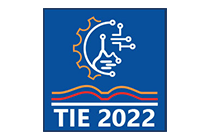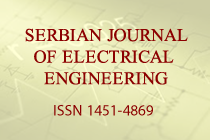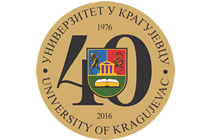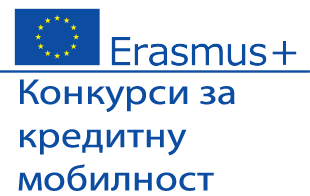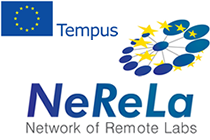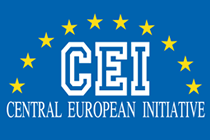FIRST YEAR
| # | Course ID | Course name | Semester | E | L | Lab | ECTS | Mandatory /Elective |
|---|---|---|---|---|---|---|---|---|
| 1 | 17.SER001 | Mathematics 1 | 1 | 3 | 3 | 0 | 8 | M |
| 2 | 17.SER002 | Informatics and Computer Science | 1 | 3 | 2 | 1 | 8 | M |
| 3 | 17.SER003 | Foundations of Power Engineering | 1 | 2 | 3 | 0 | 8 | M |
| 4 | 17.SPE001 | English language 1 | 1 | 2 | 2 | 0 | 6 | M |
| 5 | 17.SER005 | Mathematics 2 | 2 | 3 | 3 | 0 | 8 | M |
| 6 | 17.SER006 | Foundations of Power Engineering 2 | 2 | 3 | 3 | 0 | 8 | M |
| 7 | 17.SER007 | Physics | 2 | 3 | 2 | 0 | 8 | M |
| 8 | 17.SPE004 | English language 2 | 2 | 2 | 2 | 0 | 6 | M |
SECOND YEAR
| # | Course ID | Course name | Semester | E | L | Lab | ECTS | Mandatory /Elective |
|---|---|---|---|---|---|---|---|---|
| 9 | 17.SIT002 | Programming Essentials | 3 | 2 | 1 | 2 | 7 | M |
| 10 | 17.SER009 | Electrical Measuring | 3 | 2 | 2 | 0 | 7 | M |
| 11 | 17.SER021 | Programming of Logic Controllers | 3 | 2 | 2 | 0 | 6 | M |
| 12 | 17.SER011 | Fundamentals of Electronics | 3 | 2 | 2 | 0 | 6 | M |
| 13 | 17.SMI017 | Automatic Control | 3 | 2 | 2 | 0 | 6 | M |
| 14 | 17.SER023 | Digital Electronics | 4 | 2 | 3 | 0 | 7 | M |
| 15 | 17.SIT003 | Programming Languages | 4 | 3 | 2 | 0 | 7 | M |
| 16 | 17.SIT010 | Digital Signal Processing | 4 | 3 | 3 | 0 | 7 | M |
| 17 | 17.SER015 | Power Electronics | 4 | 2 | 2 | 0 | 7 | M |
THIRD YEAR
| # | Course ID | Course name | Semester | E | L | Lab | ECTS | Mandatory /Elective | ||
|---|---|---|---|---|---|---|---|---|---|---|
| 18 | 17.SIT006 | Computer Networks | 5 | 2 | 3 | 0 | 7 | M | ||
| 19 | Elective courses 1 (Students choose 2 courses) | |||||||||
| 17.SERI06 | Electric Circuits | 5 | 2 | 2 | 0 | 6 | E | |||
| 17.SERI08 | Digital Signals Processing | 5 | 2 | 2 | 0 | 6 | E | |||
| 17.SERI11 | Operating systems | 5 | 2 | 2 | 0 | 6 | E | |||
| 17.SERI01 | Practicum in Energy Converters and Drives | 5 | 2 | 2 | 0 | 6 | E | |||
| 17.SIT007 | Internet Technologies | 5 | 3 | 2 | 1 | 6 | E | |||
| 17.SERI02 | Special Electrical Installations | 5 | 2 | 2 | 0 | 6 | E | |||
| 17.SMI002 | Technical Drawing | 5 | 2 | 3 | 0 | 6 | E | |||
| 21 | 17.SER026 | Foundations of Electrical Engineering | 6 | 2 | 2 | 0 | 6 | M | ||
| 22 | 17.SER025 | Radio Systems | 6 | 3 | 2 | 0 | 6 | M | ||
| 23 | 17.SER024 | Telecommunications | 6 | 3 | 2 | 0 | 6 | M | ||
| 23 | Elective courses 2 (Students choose 2 courses) | |||||||||
| 17.SMI023 | Databases | 6 | 2 | 2 | 1 | 6 | E | |||
| 17.SERI05 | Elements of Electronic Devices | 6 | 2 | 2 | 0 | 6 | E | |||
| 17.SERI03 | Practicum in Electric power System | 6 | 1 | 2 | 0 | 6 | E | |||
| 17.SPE018 | Production Management and Entrepreneurship | 6 | 3 | 2 | 0 | 6 | E | |||
| 27 | 17.SER027 | Internship | 6 | 0 | 0 | 0 | 3 | M | ||
| 28 | 17.SER034 | Foundations of Microwave Engineering | 6 | 3 | 3 | 0 | 4 | M | ||
| 29 | 17.SER028 | Project | 6 | 0 | 0 | 1 | 1 | M | ||
| 30 | 17.SER035 | Thesis | 6 | 0 | 0 | 0 | 5 | M | ||
ELECTRICAL ENGINEERING AND COMPUTER SCIENCE
Degree upon completion of studiesBachelor of Science (BSc) in
Duration and scope of studies:
3 years, 180 ECTS
Admission exam:
Combined Test or Mathematics
Summary of the program:
The study program in Electrical Engineering and Computer Science offers comprehensive education in the field of electrical engineering. The study module on Power Engineering aims to educate engineers in the field of electrical energy production, transmission, and distribution, electrical machines and motor drives, electrothermal processes, and electrical installations, in line with the industry requirements and the pace of changing modern technologies and the economic environment. The study module on Electronics and Computer Science aims to educate engineers in the field of electronics, programming, computer networks, the Internet, and related areas. It is designed to guide future engineers towards specific occupations they will engage in. Special emphasis is placed on studying and applying contemporary trends, solving practical tasks related to electronics and electronic devices, independently creating and utilizing telecommunications networks and systems, developing practical solutions in electronics, electronic components and circuits, and implementing project solutions using appropriate software.
Within this, study program two study modules are taught:
*Power Engineering
*Electronics and Computer Science
Students choose these modules in their first year of study.
Why study Electrical Engineering and Computer Science Program:
• Because we have a 60-year tradition and continuously update our study program to align with modern trends in the fields of power engineering, electronics, and computer science.
• Because we offer a wide range of theoretical and practical engineering knowledge in these areas.
• Because the subjects taught are in line with the latest scientific and professional advancements worldwide.
• Because students will have opportunities to work in well-equipped laboratories and gain practical experience in diverse industrial environments.
• Because we provide education that meets the current requirements of job positions in the industry and infrastructure.
• Because our faculty members have extensive pedagogical experience and are distinguished experts in significant engineering fields.
• Because the program offers a wide range of employment opportunities in various domestic and international companies, as confirmed by our former students.
